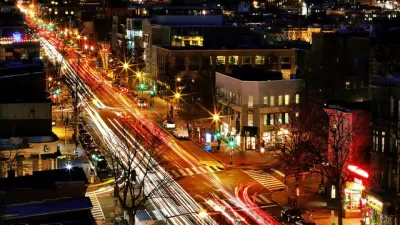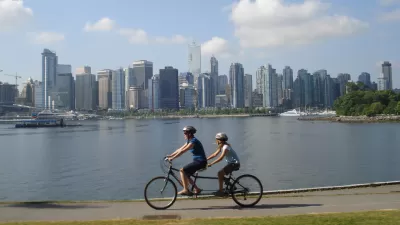Even with ambitious electric Vehicle adoption, the United States must reduce vehicle miles traveled by 20 percent before the end of the decade to limit warming to 1.5°C, according to new research by the Rocky Mountain Institute.

Brian Yudkin, Duncan Kay, Jane Marsh, and Jackson Tomchek writes for the Rocky Mountain Institute:
Beyond the climate consequences resulting from transportation emissions, this high baseline of driving has given rise to a range of societal ills in American cities. These include inequitable access to destinations, disconnected communities, and the nearly universal frustration of congestion. Our highway system has served to segregate populations, heightening long-standing injustices, while high costs of living and limited housing options continue to facilitate sprawl away from city centers.
RMI analysis indicates that the United States must reduce VMT by 20 percent before the end of the decade to limit warming to 1.5°C—and this remains true even under ambitious EV adoption scenarios.
The article continues to details some of the interventions that can reduce vehicle miles traveled (VMT), like pricing signals, ending highway expansions, and transportation demand management and provides an infographic to illustrate the effects of some of those interventions.
FULL STORY: Our Driving Habits Must Be Part of the Climate Conversation

Montreal Mall to Become 6,000 Housing Units
Place Versailles will be transformed into a mixed-use complex over the next 25 years.

Planetizen Federal Action Tracker
A weekly monitor of how Trump’s orders and actions are impacting planners and planning in America.

DARTSpace Platform Streamlines Dallas TOD Application Process
The Dallas transit agency hopes a shorter permitting timeline will boost transit-oriented development around rail stations.

Without International Immigrants, the Rural US Population Would Be Falling 58%
Census data shows that population growth in rural areas is due in large part to international migrants.

Dead End: Nine Highways Ready for Retirement
The Freeways Without Futures report describes the nation’s most promising highway removal proposals.

Congressman Proposes Bill to Rename DC Metro “Trump Train”
The Make Autorail Great Again Act would withhold federal funding to the system until the Washington Metropolitan Area Transit Authority (WMATA), rebrands as the Washington Metropolitan Authority for Greater Access (WMAGA).
Urban Design for Planners 1: Software Tools
This six-course series explores essential urban design concepts using open source software and equips planners with the tools they need to participate fully in the urban design process.
Planning for Universal Design
Learn the tools for implementing Universal Design in planning regulations.
City of Mt Shasta
City of Camden Redevelopment Agency
City of Astoria
Transportation Research & Education Center (TREC) at Portland State University
City of Camden Redevelopment Agency
Municipality of Princeton (NJ)
Regional Transportation Commission of Southern Nevada





























